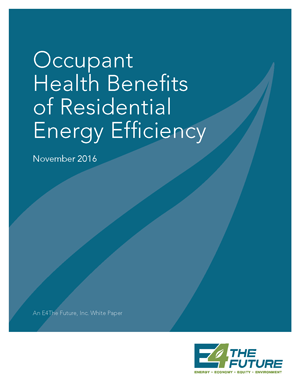This
report summarizes the existing research in an accessible format, provides examples of how energy programs have monetized health co-benefits, and highlights examples of innovative programs linking energ

y and health-focused repairs to help further such collaboration.
The report can help health, housing, and energy programs as they explore opportunities to innovate and more fully value and secure health co-benefits in program design, work protocols, and cost-effectiveness practices.
Key findings include:- Occupants can experience fewer asthma symptoms and respiratory-related emergency department visits after energy efficiency (EE).
- Occupants report better physical and mental health after EE.
- Programs delivering EE with added home repairs and client education can produce more significant improvements in asthma symptoms and indoor environmental conditions.
- Whole-house ventilation strategies using heat or energy recovery ventilators (HRVs or ERVs) can reduce asthma and respiratory symptoms in children with pre-existing risks. Such strategies are increasingly being considered in EE programs.
The report was prepared for
E4TheFuture by Tohn Environmental Strategies, the National Center for Healthy Housing, and
Three3. For more information, contact
jwilson@nchh.org or
info@e4thefuture.org.
